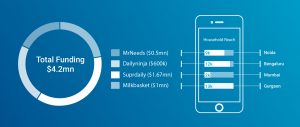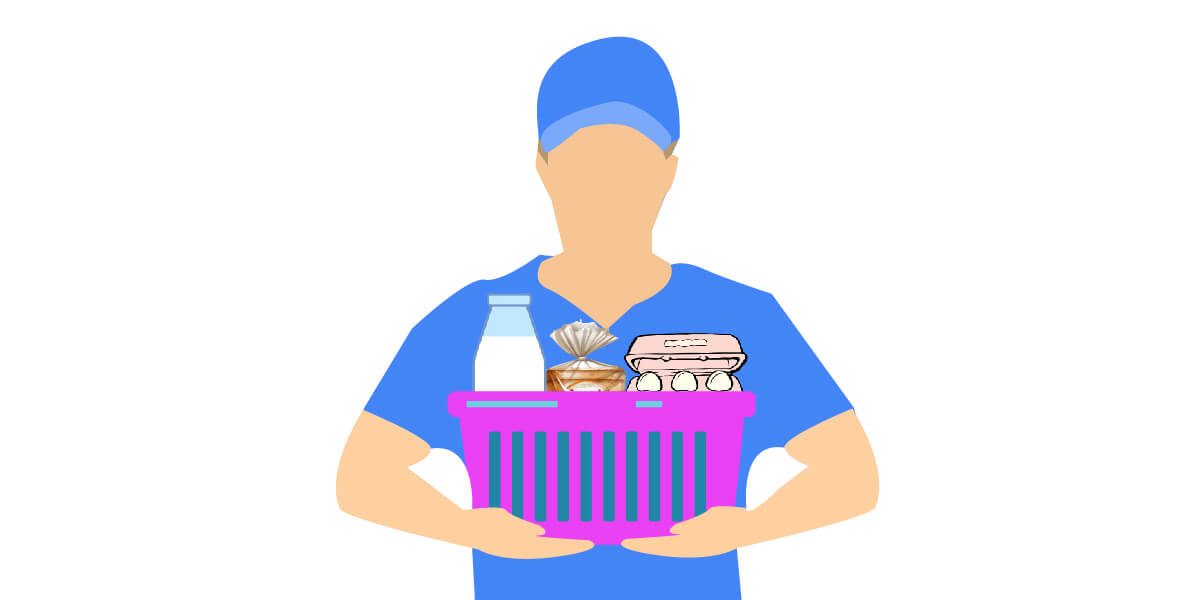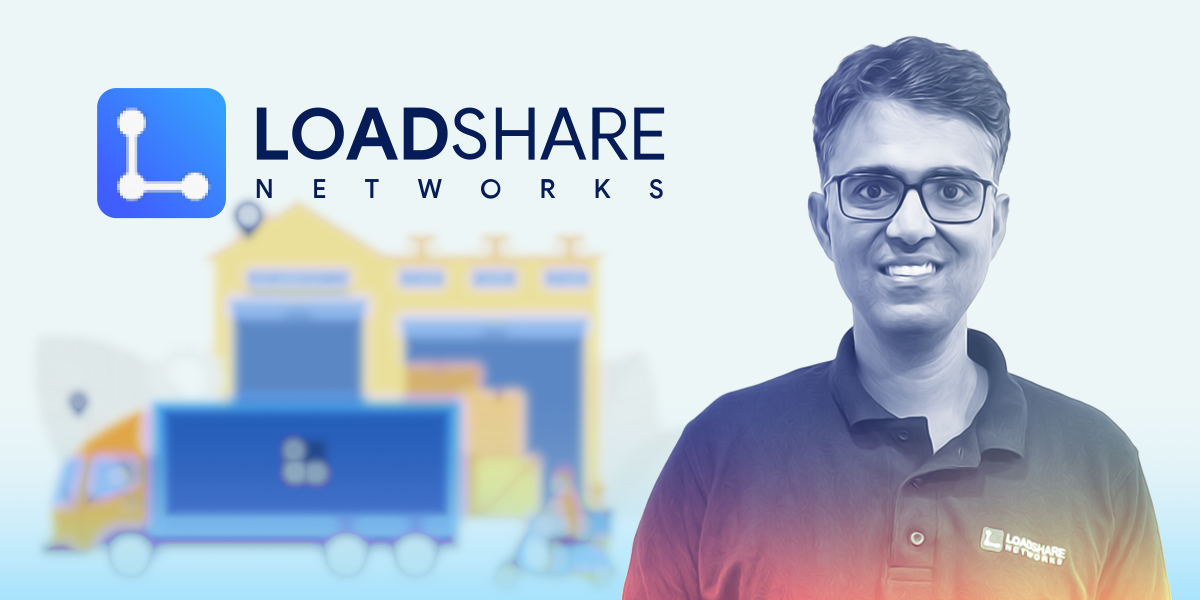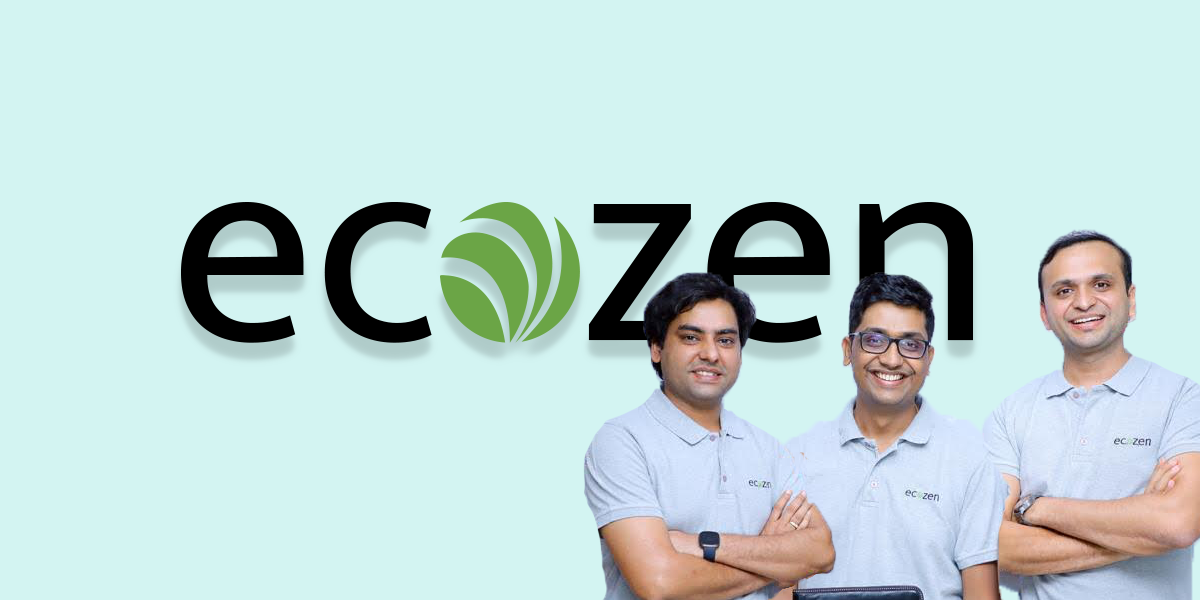Online grocery is going through second wind in India after witnessing exuberance as well as tough time in a recent years.
During 2014-15, online grocery had witnessed a spurt in funding at seed level, however euphoria got settled down in 2016. As a result, several city-focused online grocery stores shut down as they failed to raise capital beyond seed stage. Post 2016 winter, only heavily-funded players majorly Grofers and Bigbasket survived.
Both companies have been survived but still are bleeding profusely as they lose significant money on every transaction. Others like ZopNow has been surviving by focusing on small set of customers. While online grocery startups are struggling to figure out sound unit economics, rise of micro-delivery platforms claim to be an answer for loss making e-grocery stores.
Over the past two years, several micro-delivery platforms like Milkbasket, Dailyninja, Mr Needs et al emerged in different cities and they claim to have a secret ingredient for profitability. Unlike online grocery platforms, majority of micro-delivery platforms are built around premise of milk subscription. “Milk is must-have essential which households need everyday. Customer stickiness is very high for milk,” says angel investor Anirudh Damani.
Damani invested in Mumbai based micro-delivery platform, SuprDaily.
Currently, Suprdaily only offers milk in half a dozen pincodes in Mumbai. “Adulteration of milk is a huge challenge and we strive to change this. Right now, our focus is limited to milk but in future we will also include other daily essentials,” says Puneet Kumar, co-founder Suprdaily.
Though, the micro-delivery platforms are built around milk subscription, they see grocery and FMCG products as a natural extension. “Once you build strong relationship with customers around milk, you would be able to cross-sell grocery and other FMCG products easily,” explains Anant of Milkbasket.
Gurugram-based Milkbasket has a reach to 10,000 households, and it claims to have 65 per cent households buying grocery and other daily needs like fruits & vegetables besides milk. “Milk is just a kicker for building long term relationship with customers,” adds Anant.
Advantages of micro-delivery startups over e-grocers
Online grocers relatively have higher basket size as compared to micro-delivery platforms, however they don’t witness frequent orders like them. Micro-delivery platforms (which also sell grocery and other daily essentials) usually have an average basket size of Rs 200-250.
“Wallet capture and customer retention in our model are much higher than online grocers like Grofers and Bigbasket,” explains Anurag Gupta, co-founder Dailyninja.
Milkbasket as well as Dailyninja claim to have over 95 per cent customer retention rate. Dailyninja claims to have 13,000 active customers out of which 2,500 have subscribed for other essentials besides milk. Importantly, Milkbasket doesn’t follow subscription model.
It’s no secret that cracking supply chain and figuring out efficient delivery mechanism are two main pain-points for e-grocers. However, that’s not the case with micro-delivery platforms.
“Micro-delivery platform’s success mantra is based on the delivery model. By tapping the existing network of delivery system, they have been able to increase the delivery efficiency,” says Naman Sarawagi, an investor in DailyNinja.
Sarawagi explained that instead of focussing on each individual as a household, micro-delivery businesses focus on each gated-community locality as a potential customer. These small localities give a much-larger target population concentrated in one area.
 So far, leading microdelivery startups have secured (see above illustration) total $4.5 million from investors including Y Combinator, Lenovo Capital, Blume Ventures along with several angel investors. In India, the serviceable market opportunity for daily essentials consumed by people living in high-rises is pegged at $10 billion.
So far, leading microdelivery startups have secured (see above illustration) total $4.5 million from investors including Y Combinator, Lenovo Capital, Blume Ventures along with several angel investors. In India, the serviceable market opportunity for daily essentials consumed by people living in high-rises is pegged at $10 billion.
How micro-delivery platforms different from online grocers
Micro-delivery platforms have clear business model as compared to online grocery. Unlike on-demand grocery delivery companies (Bigbakset, Zopnow etc.), micro-delivery platforms take order in the evening and deliver items next morning.
“The way micro-delivery model is designed it makes the delivery work much easy as the delivery boy — who can be milkman or paper guy — can deliver other products along with some daily-use items such as milk and vegetables in a particular locality every day. This model reduces the delivery cost in low single digit,” added Sarawagi.
To understand the cost of delivery for online platforms and micro-delivery platforms let’s do some maths. While cost per delivery for Bigbasket and Grofers come somewhere between Rs 80 to 120, micro-delivery platforms claim to incur delivery cost as low as Rs 2 to 5. “Delivery cost gives edge to micro-delivery platform like us to become profitable quickly as opposed to online grocery platforms,” said Anant.
While Milkbasket and Suprdaily use their own fleet of delivery boys to facilitate orders, Dailyninja leverages network of existing supply chain of milkmen who have been delivering milk to neighbouring areas for years. “We only require delivery boys for 2-3 hours in the morning. There’s no point of hiring them full time,” said Anurag Gupta, Co-founder & CEO Dailyninja.
Are micro-delivery tend to change consumer behaviour?
On contrary to the belief that micro-delivery platforms are having greater chance to turn profitable than e-grocers, Rahul Hari of Satvacart said, “We have been piloting subscription-based milk delivery service in Gurgaon over two years. Our learning curve suggest that figuring out unit economics is tough with milk subscription.”
According to Hari, adding layer of daily essential like grocery makes sense, however by doing so micro-delivery platforms essentially trying to change customer behaviour. “
Grocery works with freedom to the consumer. The consumer needs freedom to choose whether he wants delivery in the next 90 minutes or 48 hours from now. I personally believe altering consumer behaviour takes long time, and that’s why I am not so bullish about micro-delivery model,” added Hari.
Satvacart currently has over 1,500 subscription in some pin-codes in Gurugram.
On contrary to Hari skepticism about the model, Anurag believes that micro-delivery platforms aren’t tending to change behaviour of customers. “Besides grocery shopping that happens once or twice a month, households require many daily essentials. For instance, one usually doesn’t stock bread, butter, eggs and perishables (fruits & vegetables) for entire month. We want to become destination for such daily needs,” he added.
Challenges & road-ahead
Despite of unrelenting optimism of micro-delivery startups, some experts are of a view that they aren’t scalable. Apart from top three metros (Bengaluru, Mumbai and NCR), use case of micro-delivery platforms aren’t justified,” outlined Satish Meena, Senior Forecast Analyst, Forrester India. He pointed out that most of the startups in the space aren’t able to go beyond a few areas in any particular city.
Interestingly, till now none of the micro-delivery platforms have multi-city operation. Meanwhile, Anant sees no hassle in scaling up Milkbasket. “Expansion (Inter-city or intra-city ) isn’t challenging for us. But we want to master model before we venture into other areas in a particular or another city,” he said.
So far, we have not seen big ticket size investment in the micro-delivery space. This could be a potential reason for startups like Milkbasket and Dailyninja to confine only to handful of locations across Gurgaon and Bengaluru. Currently, micro-delivery space in a nascent stage, and certainly would take some time to demonstrate viability.














